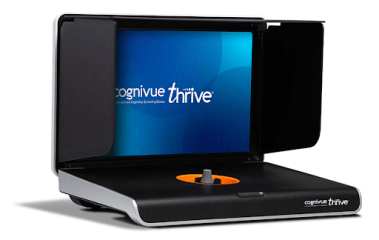There is a known relationship between hearing loss, cognition, and risk of dementia. Read on to learn more.
What Does the Research Say?
The consensus across many studies[1, 2] is that those with hearing loss, especially within the moderate to severe range, are at higher risk of developing dementia. It is important to note: hearing loss does not cause cognitive decline or dementia, rather the two are more likely to co-occur in the same individual. The correlation stands in reverse as well: treating hearing loss decreases the risk of developing cognitive decline and dementia as well.
This relationship between hearing and cognition is the reason that hearing aids are an important step to protecting cognitive health. Treating the existing hearing loss with hearing aids is the #1 most significant action one can take to decrease their risk of dementia. Short-term studies also trend towards the possibility that hearing aids may help slow the rate of cognitive decline among those with high risk of dementia.
Wearing Hearing Aids
Consistent use of hearing aids when you have hearing loss is an opportunity for the brain to be stimulated by day-to-day sound. This exposure is important even in quiet environments such as the home. Why? Wearing hearing aids regularly:
- Keeps the brain active and stimulated by processing sound
- Helps your brain and ears adjust to wearing aids so you’re practiced and ready for real-world situations (ex. a doctor’s appointment or a meeting)
- Alerts you to your environment (ex. doorbells, knocks, alarms, etc.)
Learn More
London Audiology Consultants is eager to provide you with our expertise and equipment for a comprehensive hearing test; this includes an assessment of your hearing and a screen of your cognition with our Cognivue ThriveTM.
Consultants is eager to provide you with our expertise and equipment for a comprehensive hearing test; this includes an assessment of your hearing and a screen of your cognition with our Cognivue ThriveTM.
You will receive the results of both your hearing test and cognitive screen along with guidance about some next steps.
For more information or to book an appointment, contact us below!
Article Sources:
1https://jamanetwork.com/journals/jamaneurology/fullarticle/2799139
2https://www.sciencedirect.com/science/article/pii/S1568163724001648
